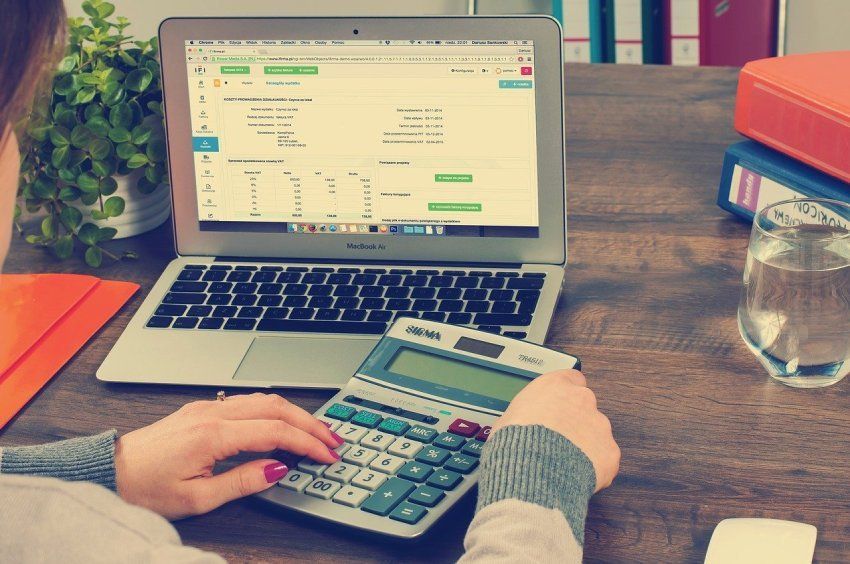Last Updated: December 08, 2023
Ask Yourself Before Taking Out a Loan

If you need money to complete a project, a personal loan may be your best bet especially compared to using a high interest credit card. However, taking out a personal loan comes with risk. Is taking out a personal loan the best option for you? Let’s look at some of the pros and cons.
What is a Personal Loan?
A personal loan is a loan of money for a certain amount of time and generally at a specific interest rate. Most repayment schedules for personal loans range between twelve and sixty months. Loans may come with fees and other costs that drive up the actual cost of the loan. Always read the fine print!
Personal loans can be secured or unsecured. A secured loan has collateral - something of value that the lender can seize if you fail to repay the loan. These include car loans, mortgages, and home equity loans. You can use a bank account to secure a loan. Secured loans have lower interest rates and generally better terms.
An unsecured personal loan has no collateral but can be used for any purchase. In general, the interest rates are better than those associated with credit cards.
When you apply for a personal loan, the lender will look at your credit score and your debt to income ratio. The first measures your reliability in repaying debt. The second looks at how much income you have versus how much debt you hold. The lower your DTI, the better rates you will be offered.
Reasons to Take Out a Personal Loan
Here are some reasons to take out a personal loan. These include improving your credit score, consolidating debt (paying off higher interest loans), alternatives to short term loans, and financing a big purchase. Of course, each of these can also be bad reasons to take out a personal loan.
Personal Loans to Improve Your Credit Score
Credit scores are based on five factors including repayment of debt, age of credit, and number of debts successfully repaid. If your credit is poor because you have not repaid debt responsibly or you are just building your credit history, you may want to consider a small personal loan. The secret to using this strategy is to make payments on time, every time! Put the loan money into a savings account and use it to repay the loan each month. That one simple action will improve your credit score almost immediately.
If you are not sure you can leave the money in a savings account, look into a credit builder loan. These loans set the money aside for you. You make the payments out of your income. At the end of the loan term, you get the money and any interest.
Personal Loans to Consolidate Debt
Using a personal loan to consolidate debt means that you take all your higher interest debt and pay it off with a lower interest loan. You now have one loan payment and lower interest charges to repay.
This only works when you have a plan not to overuse your credit cards. Otherwise, you will just get into debt again.
Debt consolidation is a great way to lower interest rates, but you should consider credit counseling in order to learn to control future credit card use.
Alternatives to Short Term Loans
If your financial situation is temporarily short of money and you are considering a payday loan or a car title loan, you should definitely look into a small personal loan to tide you over. Payday loans and car title loans are Very Bad and will lead you into a life of revolving debt. If a short term cash infusion can get you past this financial difficulty, a personal loan may be a good idea.
The interest rates are far lower than the predatory payday and car title loans and the terms are far better. You can even use the personal loan to pay off previous payday loans. You may want to consider financial counseling in order to learn how to manage your finances so you are not tempted to look at payday loans!
Personal Loans to Finance a Big Purchase
If you are planning home improvement, new appliances, or a big event, you may want to look into a personal loan. Make certain that you can afford to repay the loan on time each month! Also look into whether or not the home improvement project is worth the investment. Not all home improvement projects increase the value of your home. If you are adding extra insulation, this is a great investment and worth looking into a personal loan. If you are adding a pool or hot tub, you may actually decrease the value of your home.
Many credit cards offer warranty protection on big purchases, so buying (and then immediately paying off) appliances using a credit card makes a lot of sense. Using your home’s equity to make home improvements can decrease interest rates as these are secured loans. However, non-repayment means risking losing your home.
Taking out a loan to finance your wedding, vacation, or other event is probably not a good reason. Think carefully before taking out a personal loan to fund an event. You may be paying for it for years to come… maybe even longer than the marriage itself lasts.
Recap
The pros of taking out a personal loan are to lower interest payments on existing debt, make considered home improvements, and to improve your credit score. The cons are more debt, a decreased credit score if you fail to pay, and worthless expenditures. Always understand what you are agreeing to, what the added expenses are, and how a personal loan can help or hurt you.
A good question to ask yourself before taking out a loan is this: Will this loan help improve my finances? If the answer is no, seriously reconsider taking on the debt. For example, using a personal loan to finance everyday expenses, vacations, hobbies, risky investments or business ventures, etc. does not typically improve one's financial situation long-term. These should be avoided if possible.
Likewise, using personal loans for luxury purchases like high-end electronics, expensive jewelry, boats, cabins, RVs, or travel may end up being an unnecessary financial burden. Sure these may bring temporary happiness but often not worth going into debt over.
If you have overused your unsecured debt, especially credit cards and are considering either a personal loan or bankruptcy, you may want to speak with an expert who can help you to understand all your options. The debt specialists at Pacific Debt, Inc can help you pick your best path out of debt.
Alternatives to Consider Before Taking Out a Personal Loan
While personal loans can be useful for covering major expenses, you may want to consider some alternatives first.
Balance transfer credit cards
It allow you to transfer existing credit card balances over to a new card that offers 0% intro APR for a set period, usually between 12-21 months. This enables you to avoid paying interest charges on those balances temporarily as you pay down the debt. Just be sure you can pay off the full transferred balance before the intro 0% APR period ends, otherwise, interest will kick in retroactively.
Pros
- Avoid interest payments during 0% intro period
- May qualify even with average credit
Cons
- Balance transfer fee applies
- Interest kicks in after intro period ends
Home equity loans/lines of credit
It allow you to borrow against built-up home equity at usually more competitive interest rates than personal loans or credit cards since the debt is secured against your home.
Pros
- Lower interest rates than unsecured loans/cards
- Interest may be tax deductible
Cons
- Home is collateral, risk foreclosure
- Closing costs and fees can be high
Borrowing from friends/family
This can be an option for some instead of dealing with banks. Interest rates and terms would need to be agreed upon.
Pros
- May get better terms than formal lending
- Strengthen personal relationships
Cons
- Strain relationships if unable to repay
- May still need written loan contract
Peer-to-peer lending services
Like LendingClub allow you to borrow from individual investors instead of a bank. Credit requirements can be high but rates may be competitive.
Pros
- Competitive interest rates
- Fixed monthly payments
Cons
- High credit scores often needed
- Risk of default still impacts investors
Carefully weigh all these alternative borrowing methods against taking out a traditional personal loan. Factor in costs, loan terms, credit requirements, and risks to make the best decision for your situation.
FAQs
Pacific Debt, Inc
Pacific Debt, Inc is an award winning debt settlement company. If you’d like more information on how to get out of debt, we are happy to help. We will explain all your options and help you decide which is the best option for you. We can even refer you to trusted partners who can better meet your needs.
If you have more questions, contact one of our debt specialists today. The initial consultation is free, and our debt experts will explain your options to you.
✔ Accredited by Better Business Bureau with BBB A+ rating (4.93 rating and 1678 reviews)
✔ US News and World Reports and Bankrate ranked Pacific Debt Relief as one of “The Best Debt Relief Companies of 2024”
✔ 6.9 star rating by BestCompany.com (over 2379 client reviews)
✔ 4.8 star rating by TrustPilot based (over 1613 verified consumer reviews)
✔ ConsumerAffairs.com Accredited (over 544 verified reviews with an average rating of 5 stars)
✔ A Top 10 Rated Compan by TopTenReviews.com , ConsumersAdvocate.com and Top10debtconsolidation.com
✔ 4.6 star rating by Google (229 client reviews)
✔ 100% rating by SuperMoney (9 client reviews)
Reduce Your Credit Card Debt By Up to Half

BBB Reviews | 4.9/5.0 Rating









 Do Not Sell My Personal Information
Do Not Sell My Personal Information